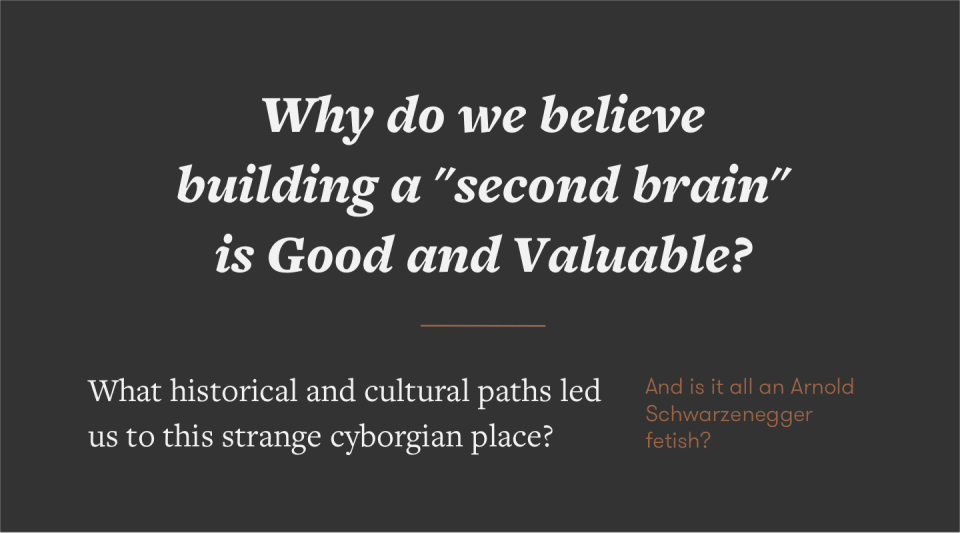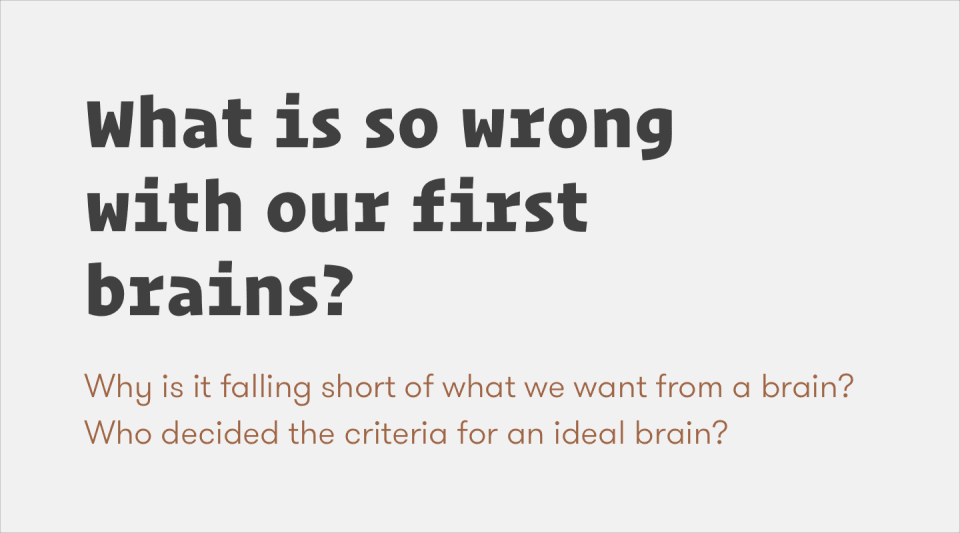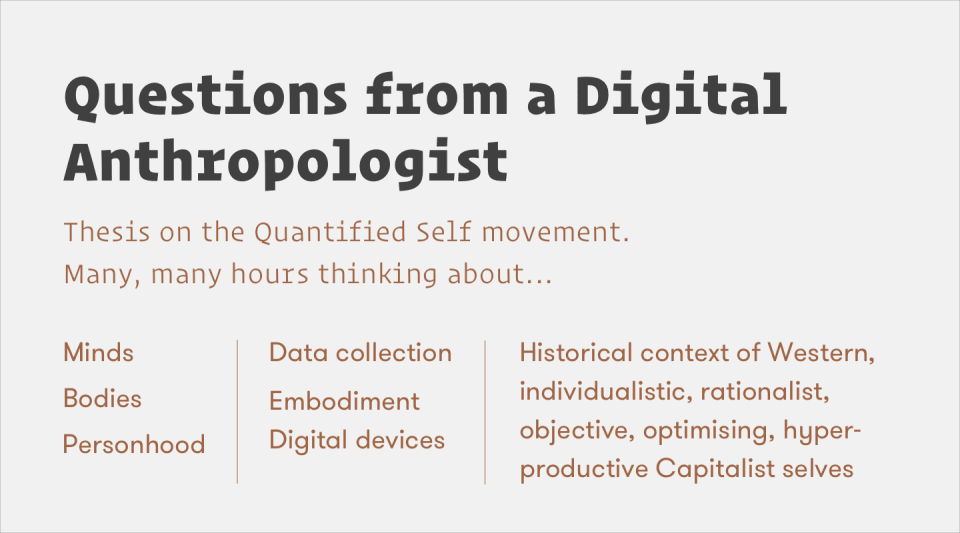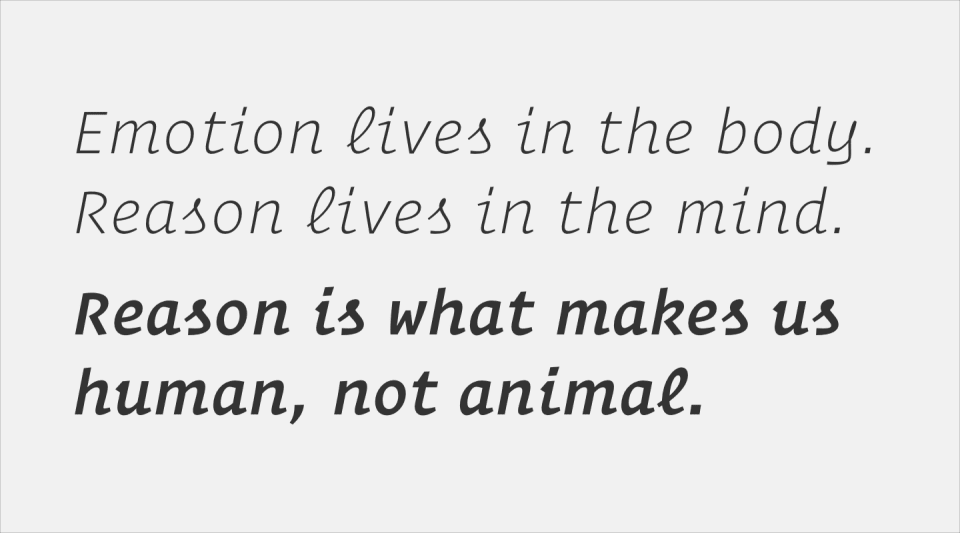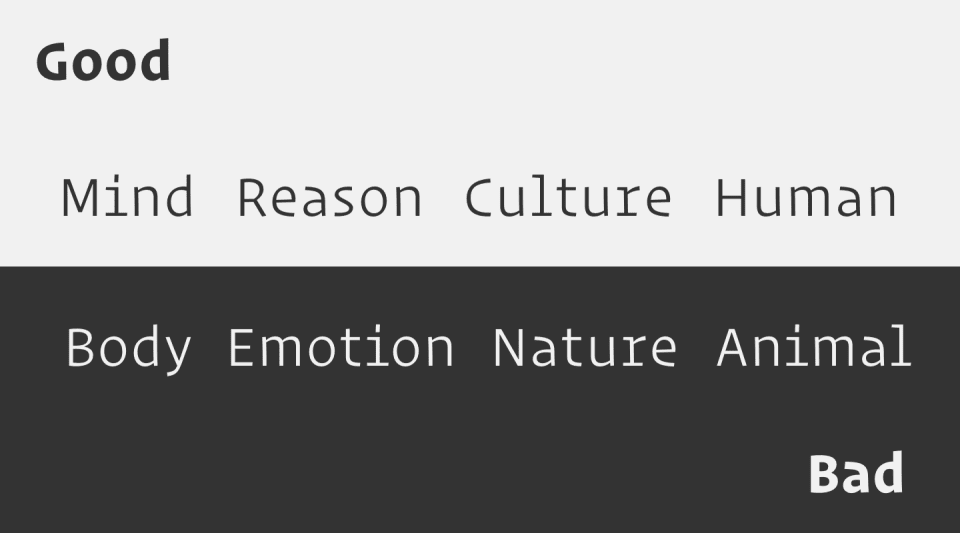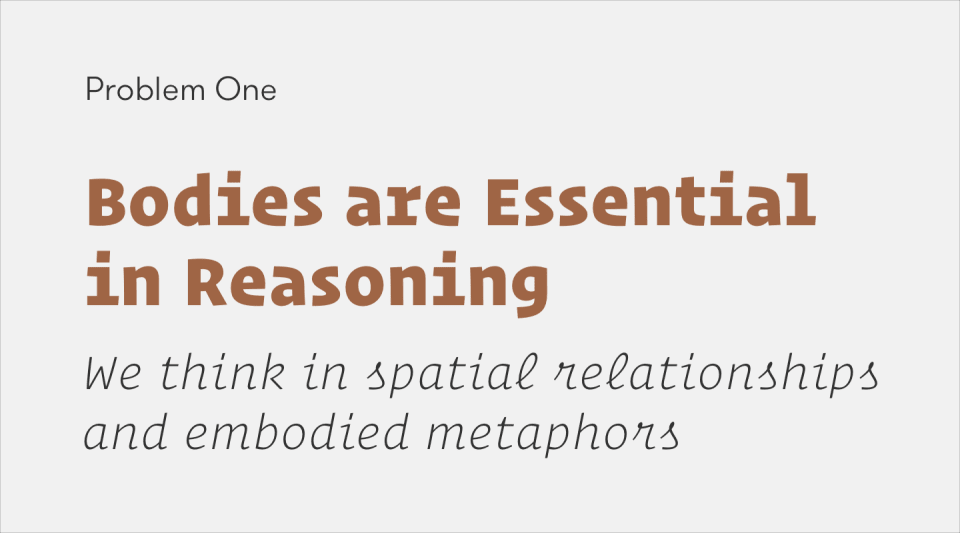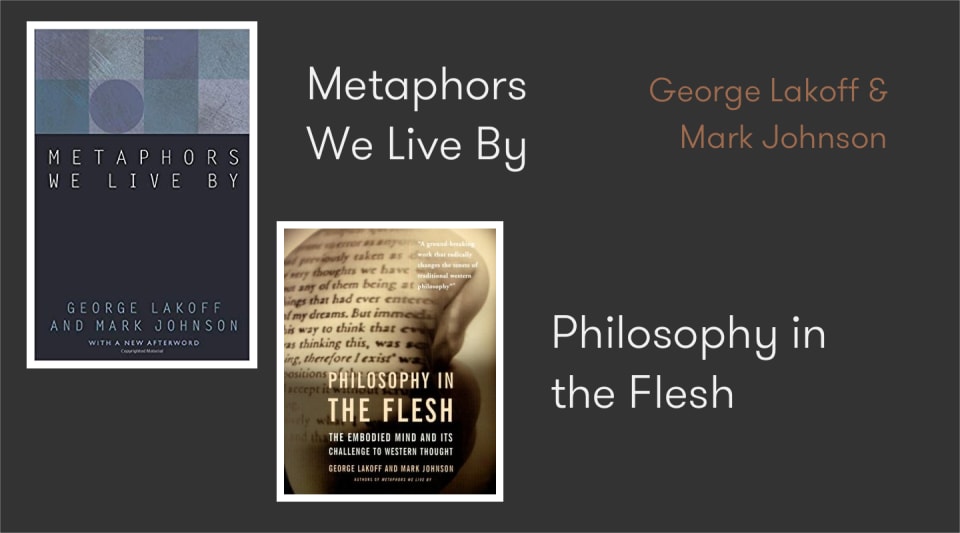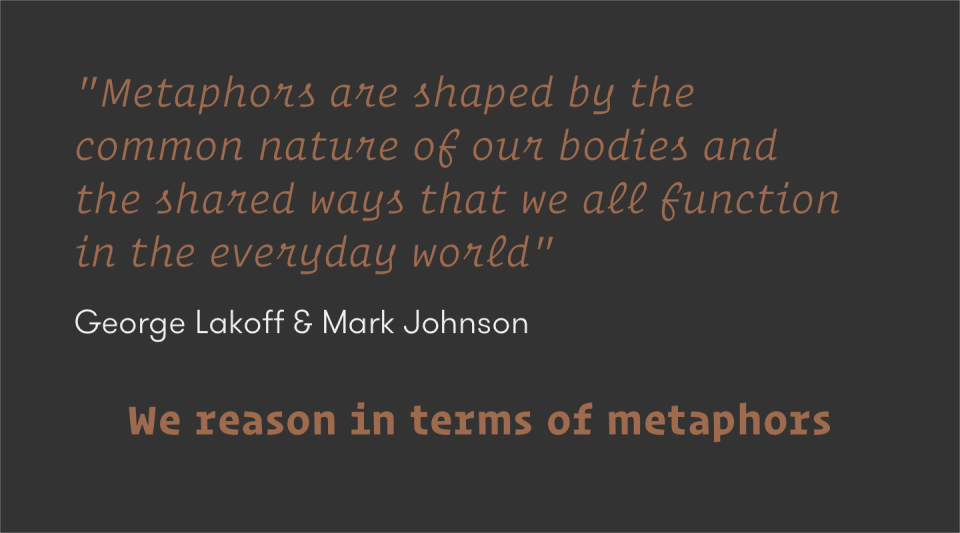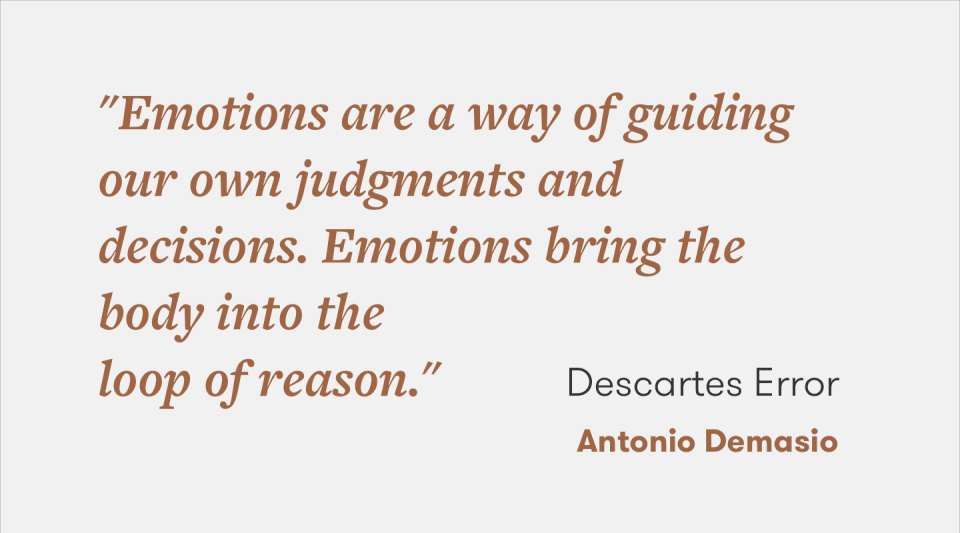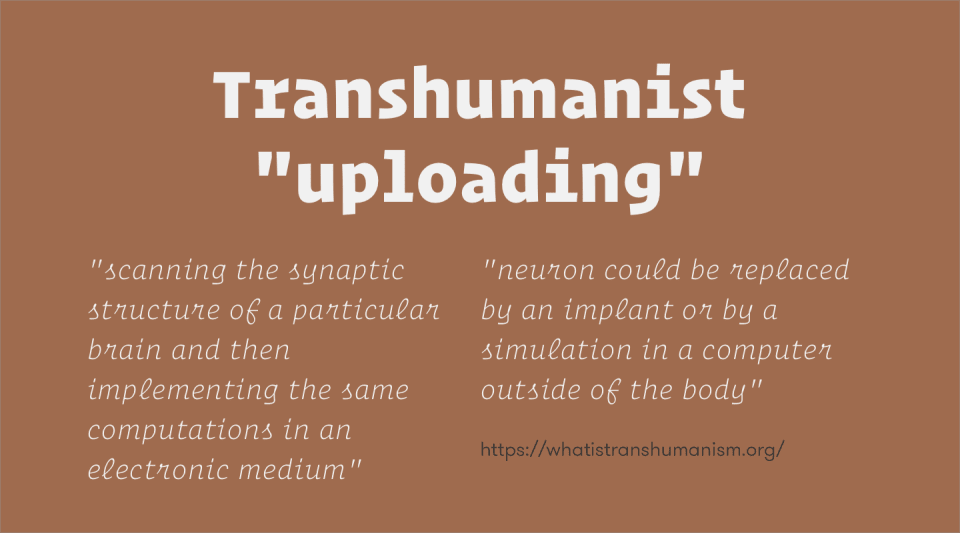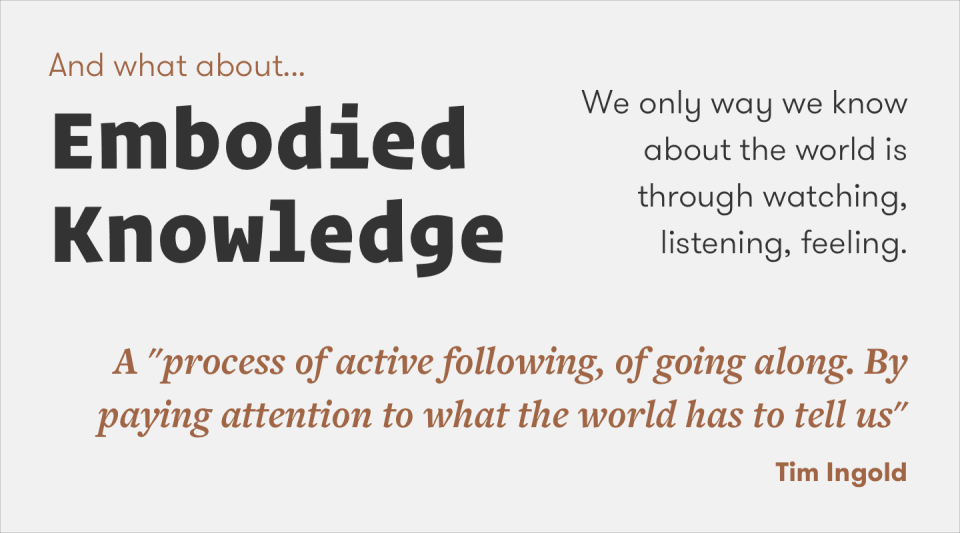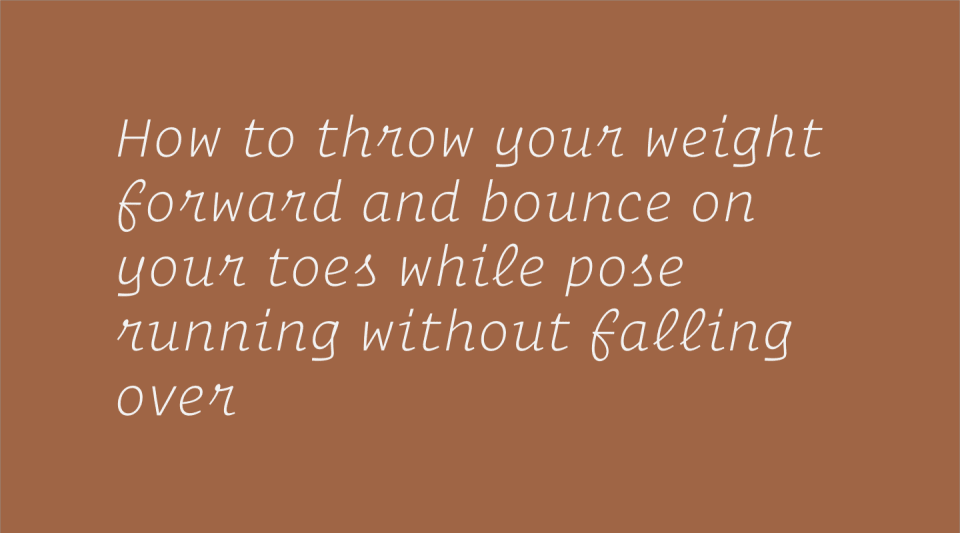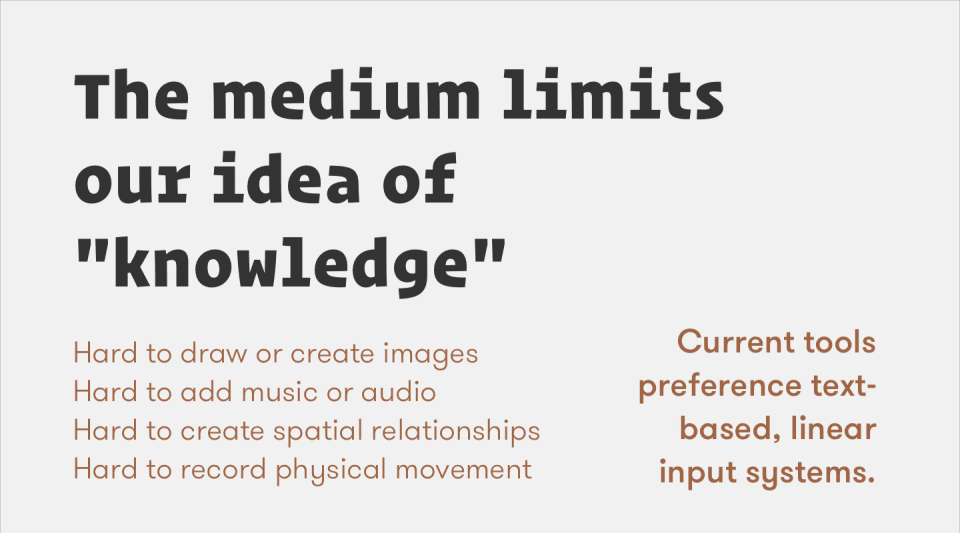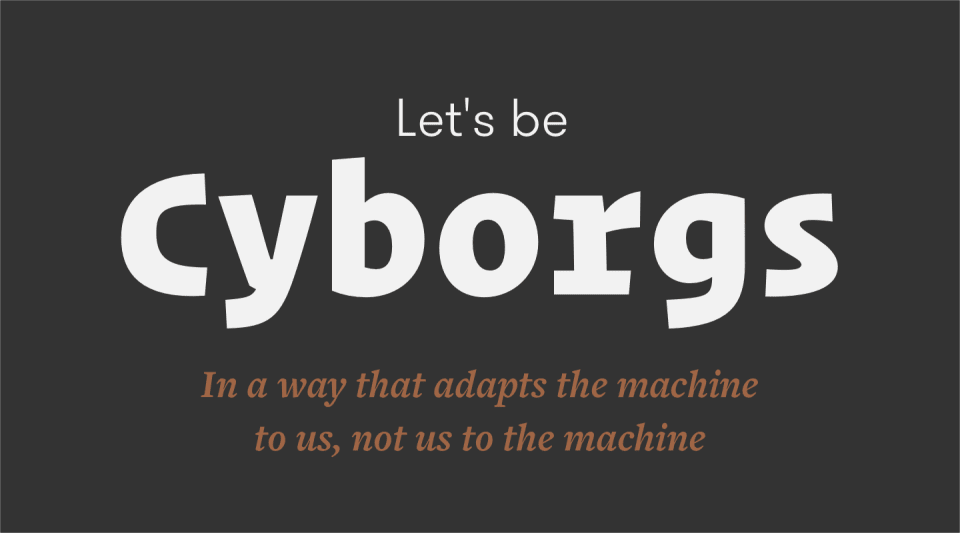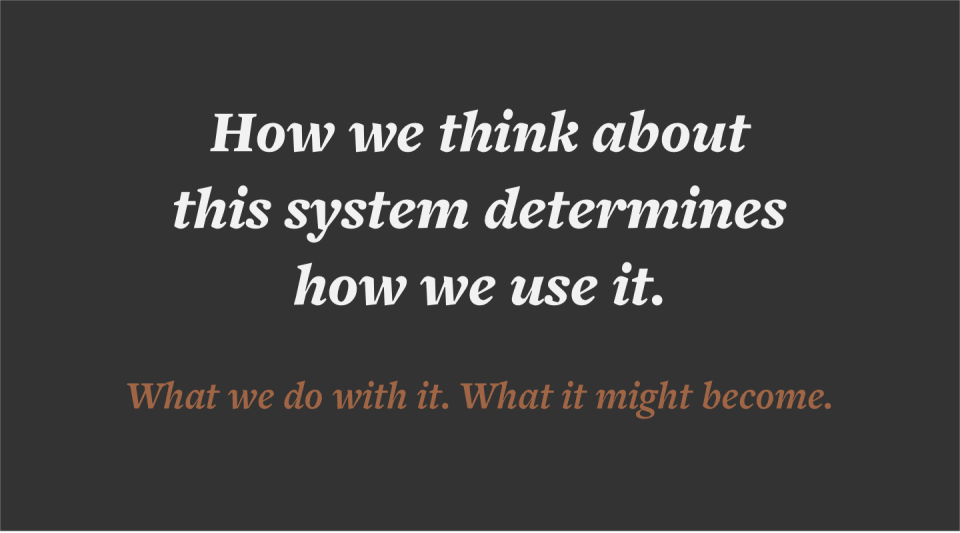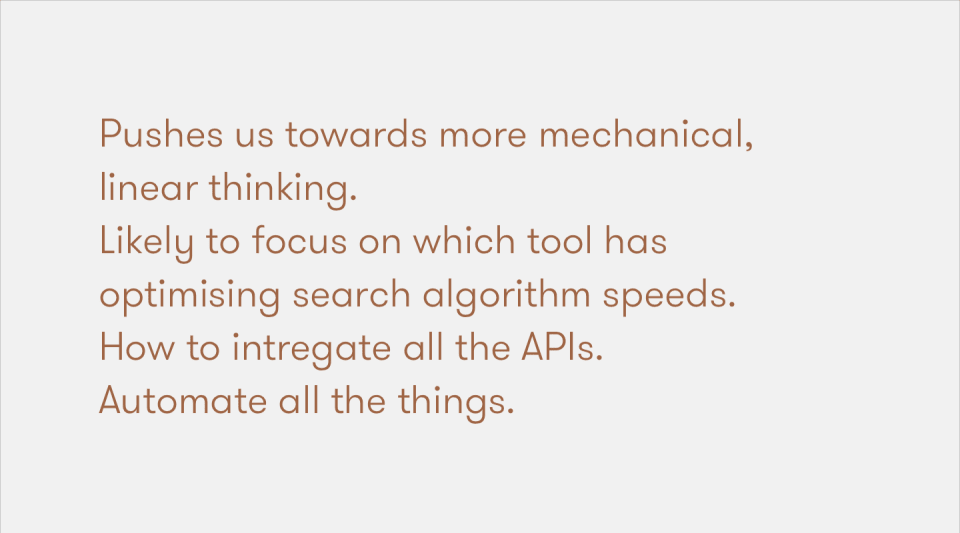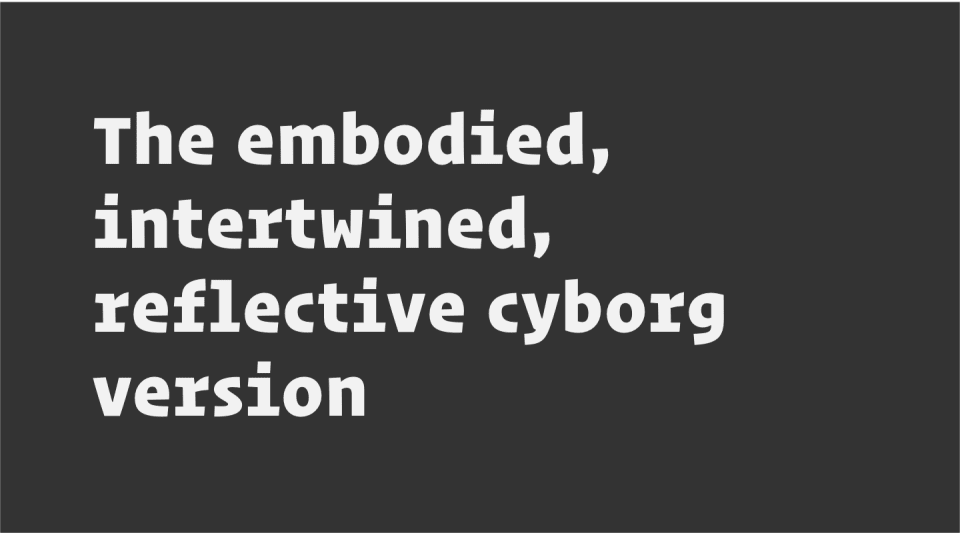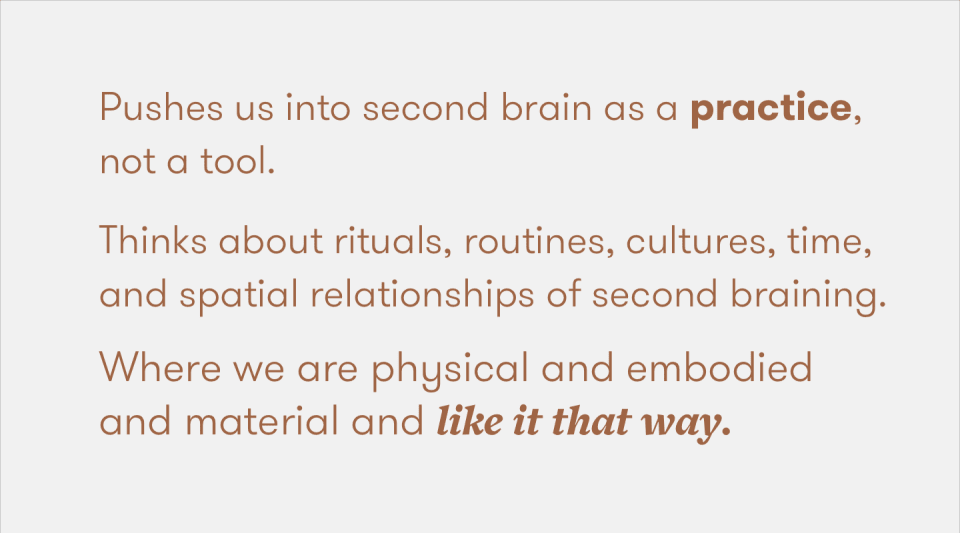What does it mean to build a "second brain," and why do we think that's a Good and Valuable thing to do?
What strange historical and cultural paths led us to this cerebral cyborgian dream?
Many of these questions and themes align with concepts I explored in - my anthropology thesis on the Quantified Self movement.
Luckily I have a small community of fellow BASB enthusiasts here in London to explore these questions with.
At our March 2020 meetup I put together a lightning talk exploring how Second Braining relates to our notions of cyborgs, our embodied experiences, and the historical legacies that landed us here.

